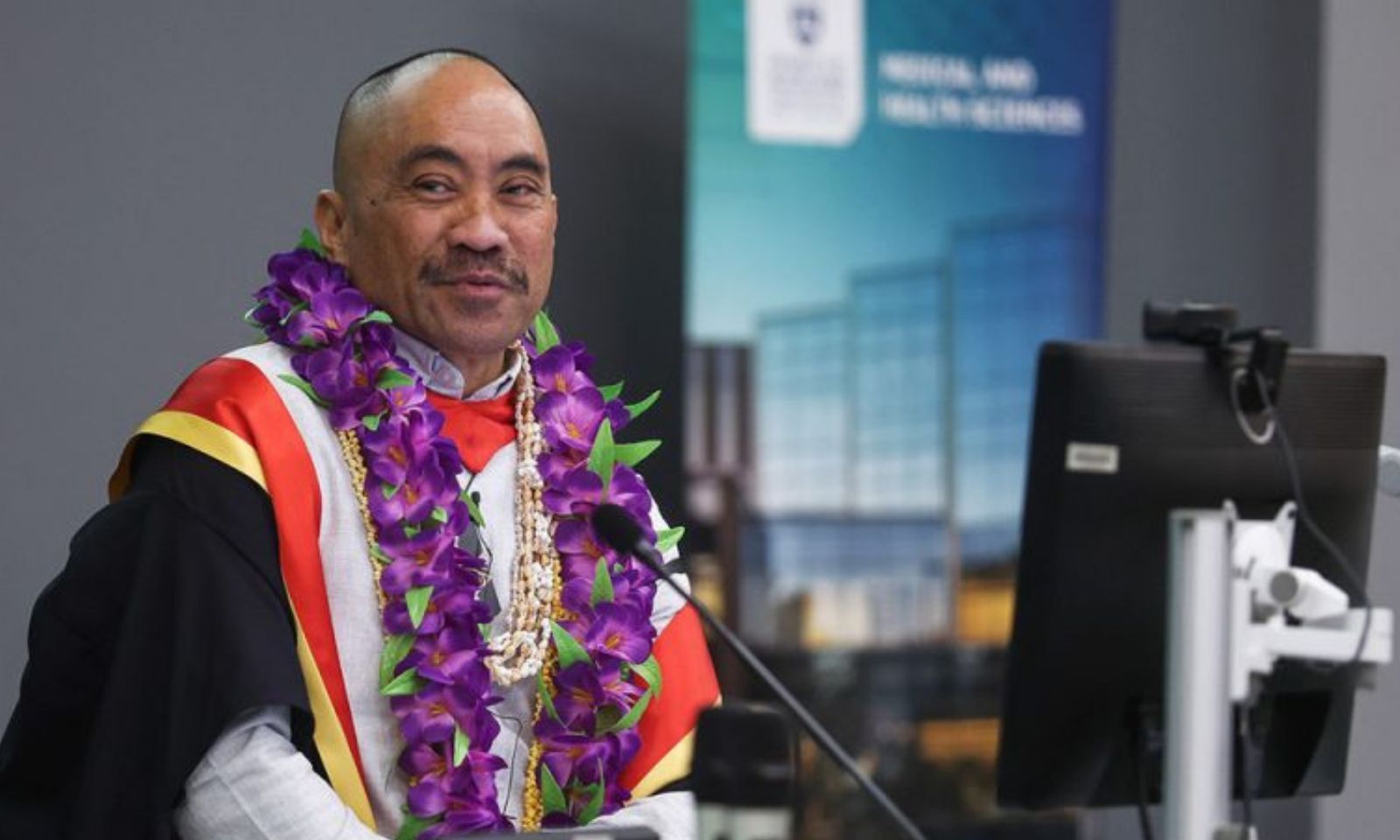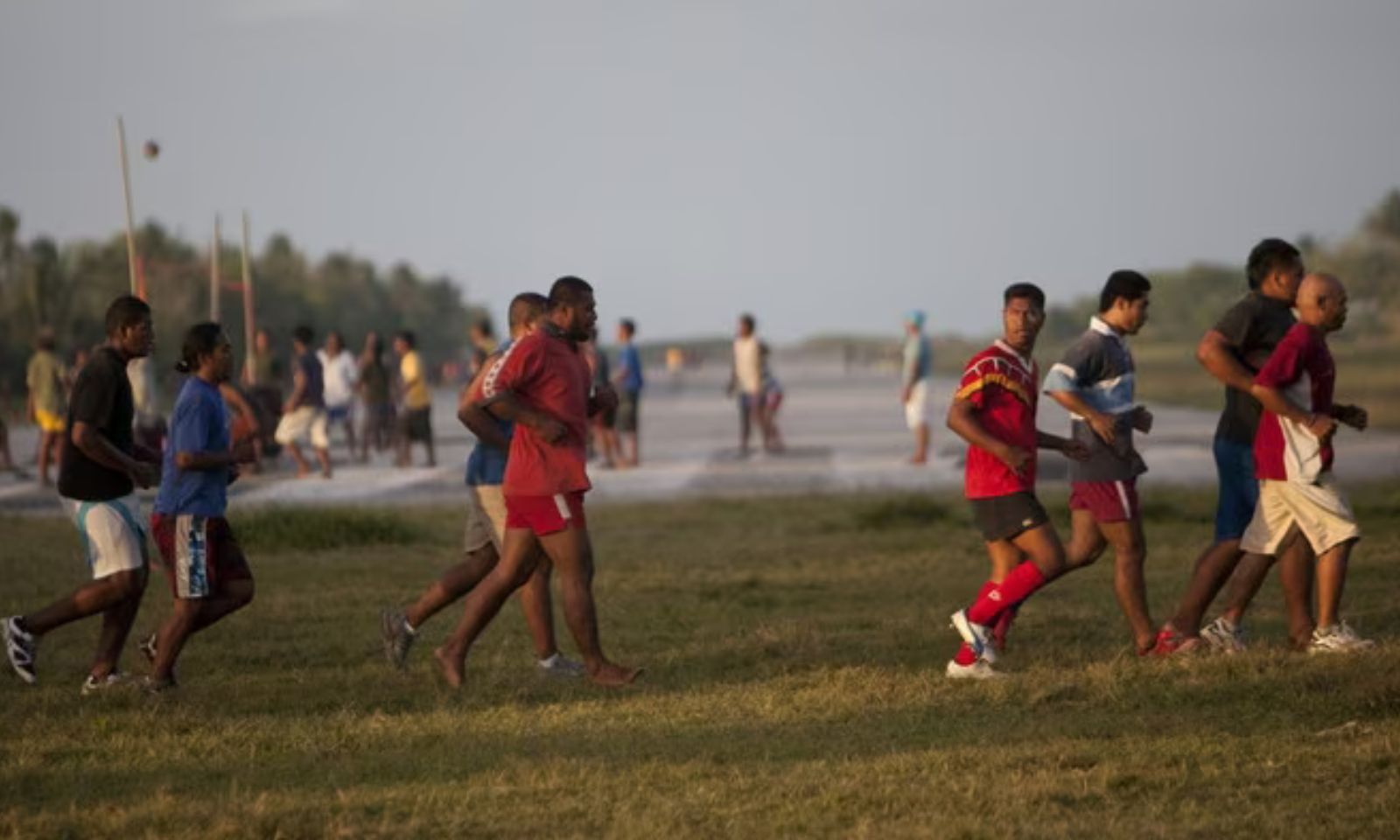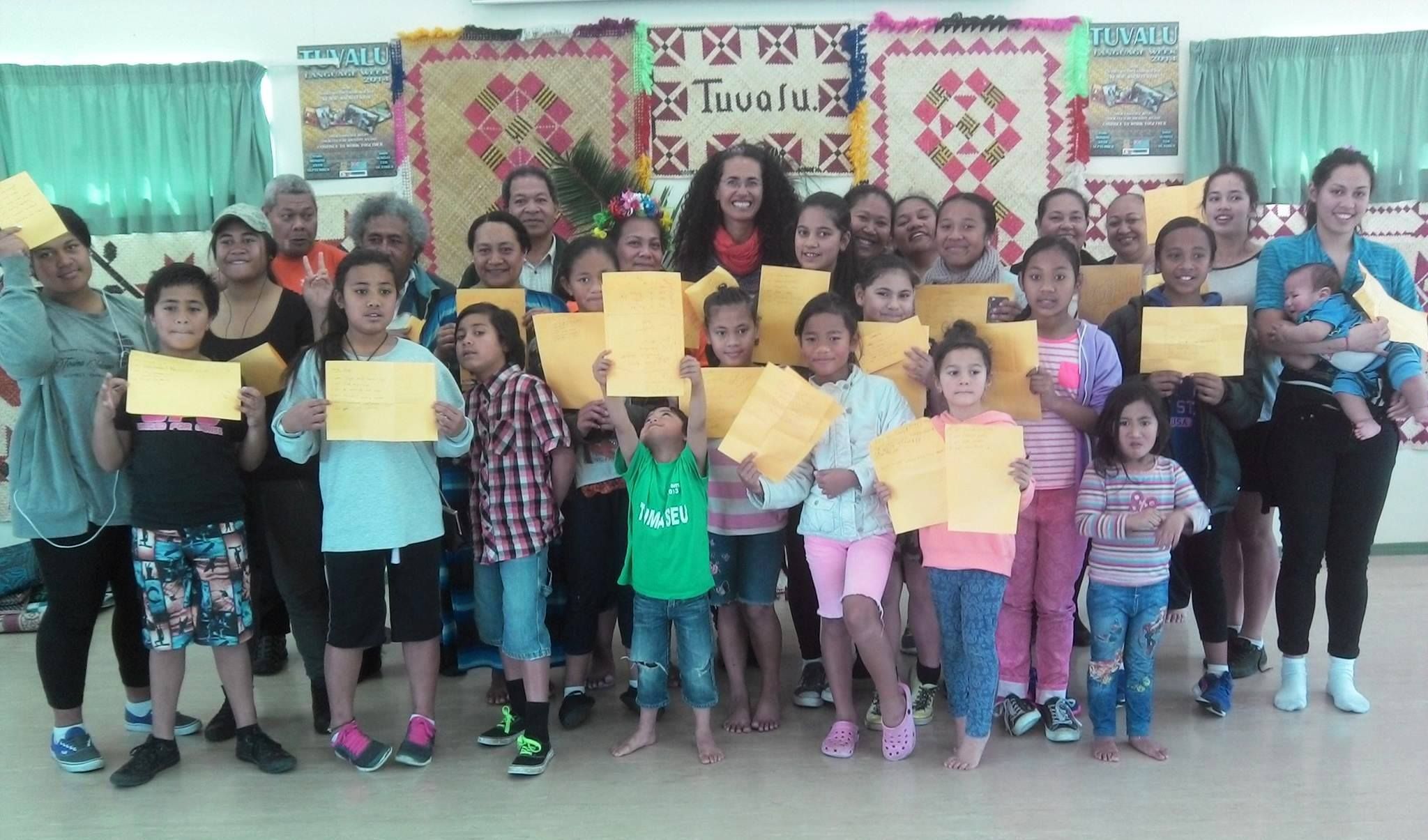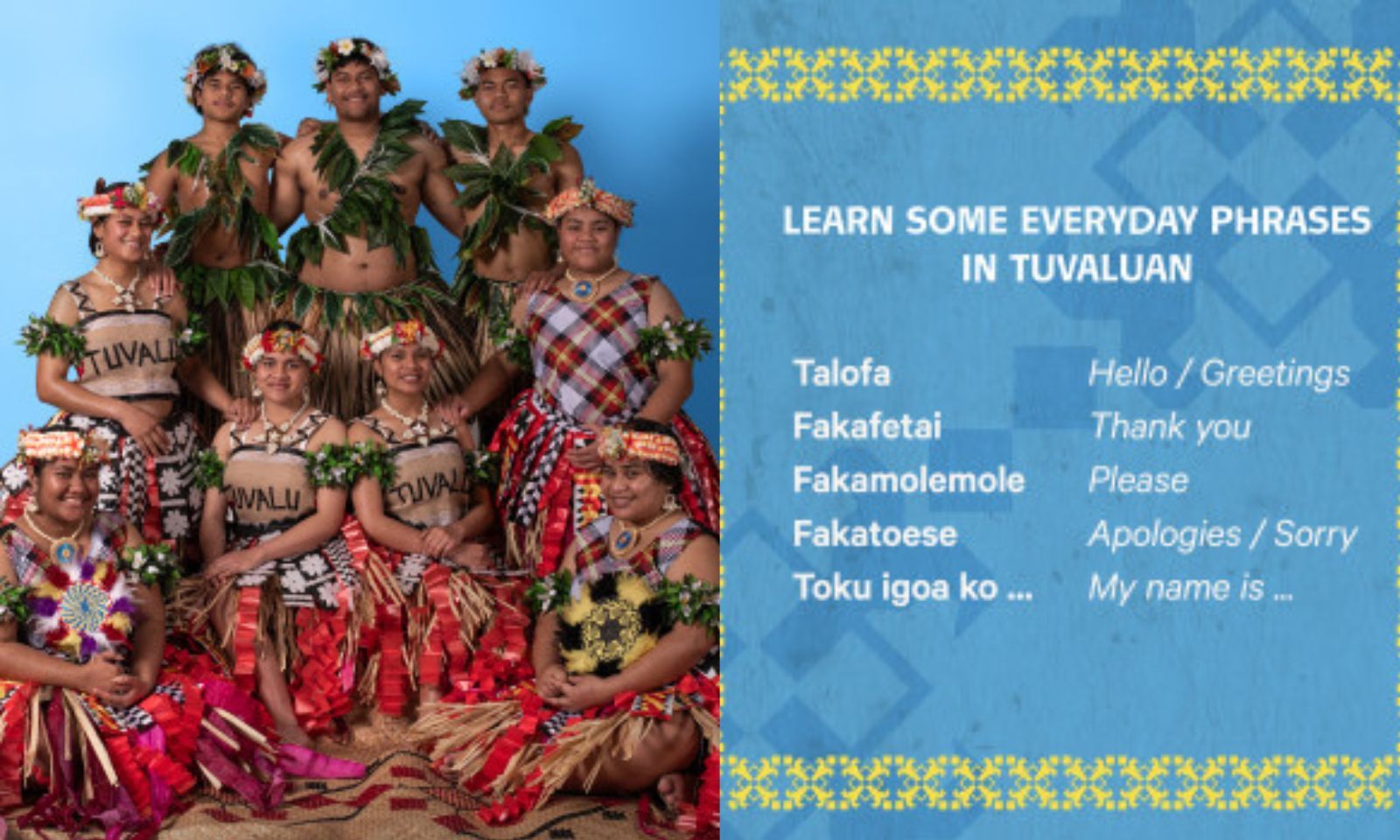

Thousands of Tuvaluans are celebrating their language and culture this week.
Photo/Ministry for Pacific Peoples
Tuvaluans celebrate resilience and culture amid climate challenges
Talofa! It's Vaiaso o te Gana Tuvalu - Tuvalu Language Week and the theme is 'Speak confidently and respect your foundation’.



Moana Pasifika end Lautoka curse to win 'Battle of the Pacific'


A.R.T sets new Pacific music pace with ‘First Thursday’ releases



Moana Pasifika end Lautoka curse to win 'Battle of the Pacific'


A.R.T sets new Pacific music pace with ‘First Thursday’ releases
This week, many Tuvaluans living in Aotearoa New Zealand are coming together to celebrate their language and culture, including their independence anniversary on 1 October.
The annual event kicked off on Sunday as part of the New Zealand Language Series. The theme for Vaiaso o te Gana Tuvalu - Tuvalu Language Week is ‘Faipati mo te mautinoa kae amanaia tou fakavae – Speak confidently and respect your foundation’.
Professor Vili Nosa from the University of Auckland, who has recently been promoted to a position in Pacific health, fondly remembers his visits to Tuvalu.
Nosa discovered that the arrivals and departures at Funafuti International Airport are just the tip of the iceberg. With limited land and only a few flights each week, the airport tarmac serves as a gathering place where locals enjoy activities like volleyball, motorbike rides, picnics, and socialising.
Most people can relate to how a car can pause a game of cricket or touch football on a neighbourhood street. In Funafuti, the sound of a siren from the airport means a plane is coming, and locals quickly clear the runway.
During his research on climate change in Tuvalu, Nosa, on many occasions, would walk along the airstrip with his colleague, Associate Professor Dame Teuila Percival.

Professor Vili Nosa says Tuvalu is a very special place. Photo/Auckland University/Chris Loufte
“It’s a very special place for me,” he says. “It’s such a small island; you can walk from one side to the other and back again.”
Nosa says Tuvalu is significant, especially as it faces the challenges of climate change. “It’s at the front line of survival, but also embodies strength. The people here are grounded, generous, and strongly connected to their land.”
He compares the runway to more than just an airport feature. “It symbolises movement, gathering, and community,” he says, highlighting Tuvalu’s resilience, especially since the island’s highest point is only about 15 feet above sea level.

Tuvaluans play sports on and beside the runway at Funafuti International Airport. Photo/Oxfam Australia
The runway, which was rebuilt to handle climate issues, is a critical resource and a sign of the island’s ability to adapt. Originally built by the United States Navy during World War II, it continues to be a lifeline for the community today.
Professor Selina Tusitala Marsh, the new Commonwealth Poet Laureate, also has roots in Tuvalu. She believes that poetry and language are key to preserving culture.
“Poetry is our torch,” she says. “It lights the way between our different cultures and histories. When we celebrate the creativity in our communities - whether it comes from Samoa, where my mother is from, or Tuvalu - we acknowledge the dignity and worth of every person’s story.”
Marsh proudly traces her last name back to her grandfather, Vailei Tusitala, hailing from Niutao and Funafuti in Tuvalu.
“I am the proud granddaughter of Vailei Tusitala; he gifted me my family name and the legacy of storytelling,” she says.
Tuvalu is located about 3200 kilometres north of Aotearoa and has a population of around 10,000 people.

Tuvaluan poet Selina Tusitala Marsh, back centre, shares her talents and skills with the Tuvaluan community. Photo/PMN/File
In New Zealand, about 6500 people identify as Tuvaluan, according to the 2023 Census. The community is young, with an average age of just 21.5 years, and is closely connected to its heritage and current challenges.
At an international climate summit in July, Tuvaluan Prime Minister Feleti Penitala Teo shared a heartfelt message: “The seas are rising, but our determination rises even faster. We will endure.
"Climate change is not something we caused, but it will certainly change us. We are doing everything we can to protect our land. We’ve updated our Constitution to declare our sovereignty will continue regardless of what happens to our land.”
Tuvalu is also working to preserve its culture by establishing a national museum and developing a digital archive of its traditions and history.
These steps are crucial in ensuring that Tuvaluan identity thrives, even if the physical land disappears. As Tuvalu Language Week continues, the image of a runway serving as a community park reminds many that spaces can be transformed, stories can be shared, and new beginnings can emerge.
The Tuvalu Language Week- Vaiaso o te Gana Tuvalu - will wrap up on Saturday. Click here for more information.

Photo/MPP
Fast-facts:
Tuvalu is the fourth smallest country in the world, covering just 26 square kilometres, and has around 11,000 residents.
Tuvalu does not have ATMs or a military and relies heavily on cash for its economy. The Australian dollar is used as its currency.
Most of Tuvalu’s islands lack rivers and freshwater lakes, so residents mainly depend on collecting rainwater and desalination for drinking water.
With its highest point being only about 15 feet above sea level, Tuvalu is one of the countries most vulnerable to climate change.
There is only one hotel and one guesthouse in Tuvalu, making it one of the least-visited places in the world due to its remote location.
Next up on the New Zealand Language Series is Macawa ni Vosa VakaViti - Fijian Language Week from 5-11 October.
Watch PMN Tuvalu producer Fala Haulagi's interview with Kalo on Morning Soul below.